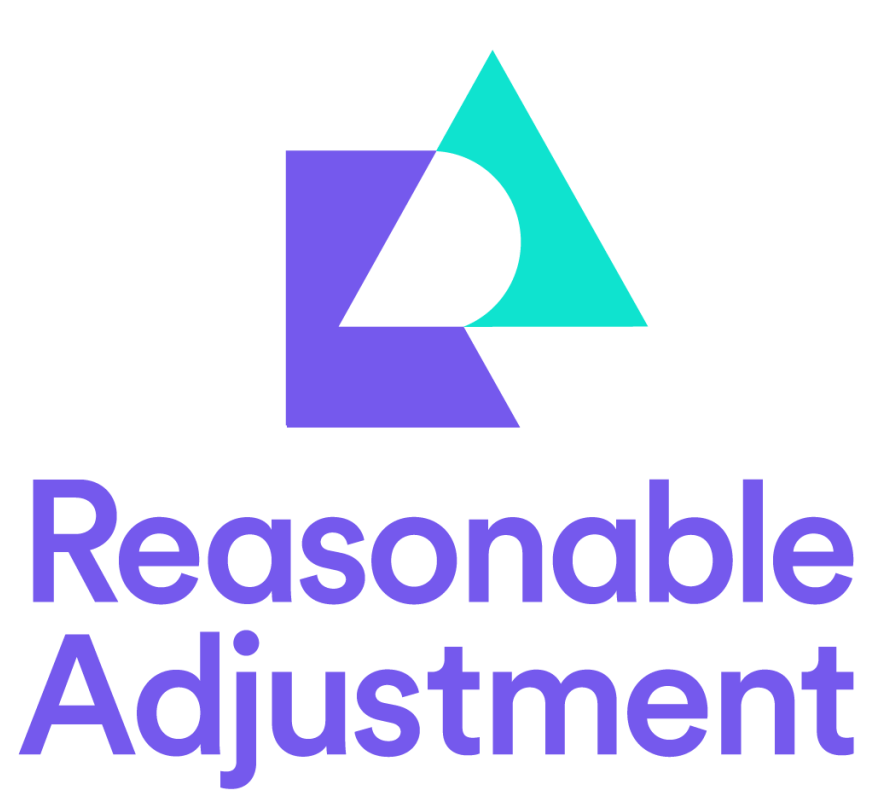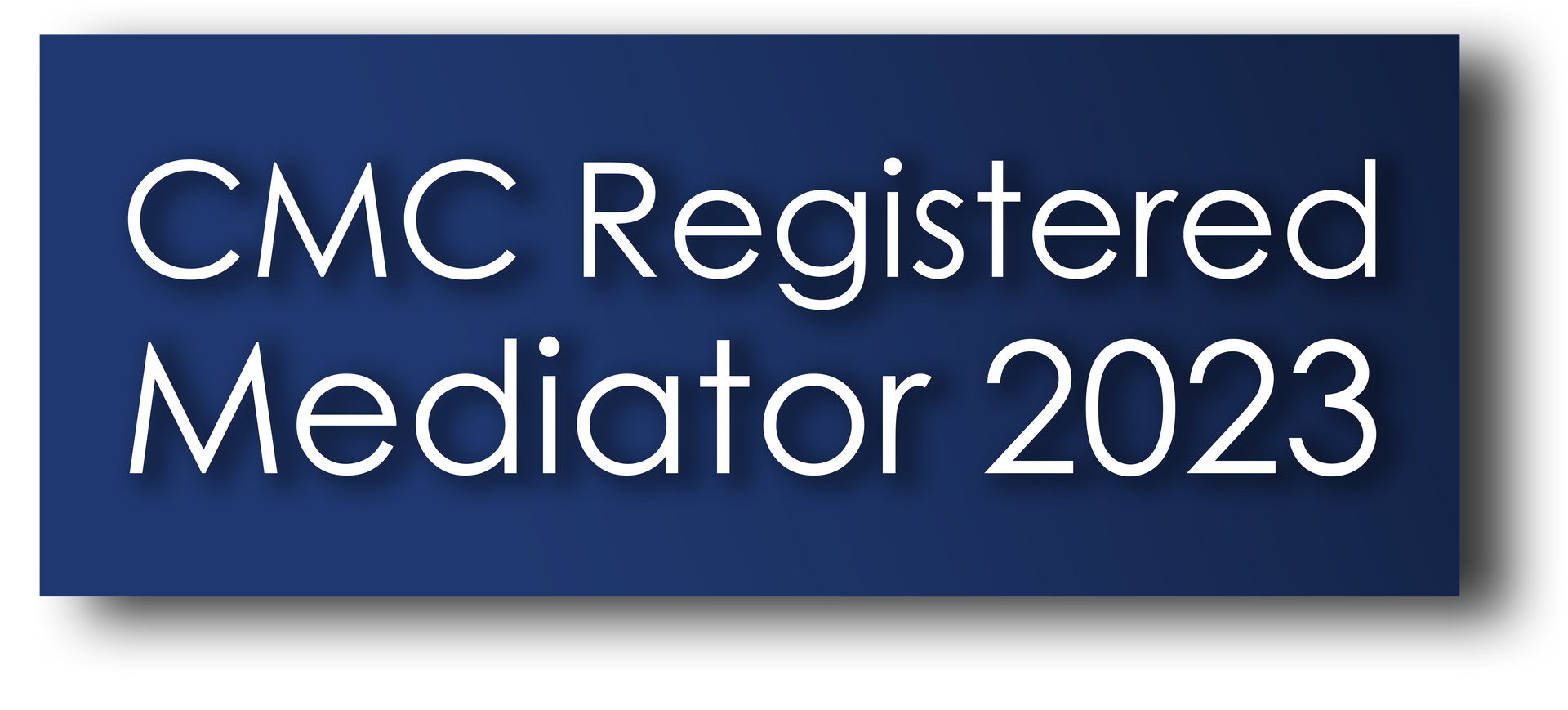FAQs
Workplace Adjustments - Education Adjustments - Life Adjustments
-
What are Reasonable Adjustments?
Reasonable Adjustments, often known as Workplace Adjustments (although they apply almost everywhere) are changes that organisations and people providing services or public functions have to make for you if your disability puts you at a disadvantage compared with everyone else.
There is an anticipatory duty to make reasonable adjustments. This means institutions must plan in advance to meet the access needs of people with disabilities. Often this does not occur, and even if your work or school has an adjustment policy it might not take into account your specific needs. As well as being anticipatory, adjustments must also be individualised, and that’s what we specialise in.
-
What are some examples of standard Reasonable Adjustments?
In terms of disability, a Reasonable Adjustment may include changes to 'physical features' and 'provision of auxiliary aids'. The code of practice in the Equality Act 2010 includes examples such as:
- Making adjustments to premises (such as providing ramps, or altering lighting)
- Altering working hours
- Allowing absence for rehabilitation, absence or treatment
- Arranging or giving extra training
- Acquiring or modifying equipment
- Providing a reader or interpreter
These are the standard adjustments, and we have helped people obtain much more nuanced changes to their lives.
-
What counts as 'reasonable'?
Adjustments only have to be made if it’s reasonable to do so, and there is no "one size fits all" to what counts as reasonable. It varies depending on the unique situation of the disabled individual and the organisation they operate within.
- What is 'reasonable' depends on things like:
- the individual's disability
- how practicable the changes are
- the size of the organisation
- how much money and resources are available to make changes
- if any changes have already been made
We work with individuals and organisations to help them determine what is 'reasonable', and implement adjustments which are mutually beneficial for all parties.
-
Who has to pay for Reasonable Adjustments?
The Equality Act 2010 clearly states that disabled people should not have to pay for Reasonable Adjustments. It is therefore the responsibility of employers, educational establishments and organisations to cover these costs.
Many adjustments can be simple and affordable. However, a small business or institution might not be able to afford the same level of adjustments as a big company.
If an organisation cannot afford a Reasonable Adjustment, the person with a disability might be able to apply for funding through the government’s Access to Work scheme. The organisation should also try to find other ways to support the disabled individual. We have supported people through this process and are also a wealth of knowledge when it comes to scholarships and support funds.
If you are unsure how to navigate the costs of Reasonable Adjustments, we can help individuals and organisations find the best way forward.
-
Can't I just ask a GP or Occupational Therapist to write my report?
Often a GP or an Occupational Therapists letter is the first step, usually you will have a letter already which outlines your diagnosis. This could help you obtain a Reasonable Adjustment; however, these reports are usually very general as your GP or OT won’t be an expert on the Equality Act, nor be able to advise on specifics of your employment, your examination, nor on the reasonableness of the adjustment itself. Often a letter from your GP or OT won’t contain the information needed or won’t provide more than a generic adjustment. Any adjustment more bespoke may be disputed or ignored by organisations because they do not detail why your adjustments are legally required under the Equality Act. As Independent Occupational Health Practitioners (OHP) we look at much more than than your GP or OT when providing advice and assessment, and as members of the Society of Occupational Medicine we are are up to date with the latest research and practice.
Our in depth knowledge of the Equality Act, and specialist sector knowldge, enables us to write Reasonable Adjustment reports which meet individual medical needs, and hold up from a legal perspective.

Slide title
Write your caption hereButton
Slide title
Write your caption hereButton
-
Can I get Reasonable Adjustments for my child?
Yes. Many children and young adults require Reasonable Adjustments in school and college. We can work with you and your child to ensure they receive suitable Reasonable Adjustments in their learning environment and for their examinations.
We work with all level of disability and can help you obtain the right Education Health and Care Plan (EHC) and ensure your local authority provides the right support. We can review if your child should be mainstreamed (if that’s your wish), and assist in obtaining the right SEN support.
-
What if someone doesn't cooperate with the duty to make Reasonable Adjustments?
If someone doesn’t cooperate with their duty to make Reasonable Adjustments, the Equality Act states that this is unlawful discrimination.
If a person or organisation refuses to make necessary changes, you can make a discrimination claim under the Equality Act.
As a barrister and expert witness, we can assist you with this claim.
-
How has Covid-19 affected Reasonable Adjustments?
Amongst the devastating effects of Covid-19, the pandemic has actually allowed for many positive steps in terms of accessibility.
For many people with disabilities and chronic illnesses, it is preferable to work, study and sit exams from home. However, until recently, organisations have often said that this was unfeasible or led to competency concerns.
Since social distancing rules have required remote schooling and working, it has been proven that it is possible for organisations to create these accessible working conditions.
As we slowly start to return to "normal life", it is important that these accessible practices should be formalised and retained for those who benefit from them.
If working or studying from home has improved your quality of life, we can write Reasonable Adjustment reports which detail why, under the Equality Act, you require these accessible practices to be preserved.
-
Why might an employer want to obtain a Reasonable Adjustment report?
The duty to make adjustments is pre-emptive, so you should already have a reasonable adjustment policy in place; we can help draft this.
If you have or potentially have disabled employees working for your organisation, it can be a good idea to obtain a Reasonable Adjustment report.
Formal diagnoses of a disability isn’t necessary for you to make adjustments for your staff, even without a diagnosis it can be considered discriminatory if you think a staff member might be disabled or have a long term health condition and you don’t make an adjustment.
A report will help you to better understand your employees' needs and rights, and thus support them better in the workplace. Ultimately, this will lead to happier, more productive employees - which is good news for them and for you.
-
What are your Consulting Credentials?
As a coveted FGP (Fellow Governance Practitioner) we’ve worked with boards and executive teams of large companies to change and influence direction; to identify areas of improvement, or risk, and to implement projects from start through to review. Our team has also taken strategic positions within companies with titles such as Director of Diversity, Director EDI, and sat on boards as part of project implementation, cultural change, and crisis management strategies. As former Civil Servants directly advising Cabinet Ministers with portfolios ranging from Justice, Education, to BEIS there’s nothing we haven’t faced (either in the public or private sector).
Obtaining Disability Confidence Scheme Awards (Employer & Leader) and other types of recognition are one of our specialities, and we enjoy guiding clients through the steps and changes needed in order to be successful.
If you have tough project our would like to hear more about how we can help, get in touch below. Unlike other organisations we aren’t political and don’t have an agenda to push, we don’t give you ‘our take’ on the Equality Act or EDI, we tell you what the law and best practice is and what will work best for your company and in your sector.

Slide title
Write your caption hereButton
Slide title
Write your caption here



